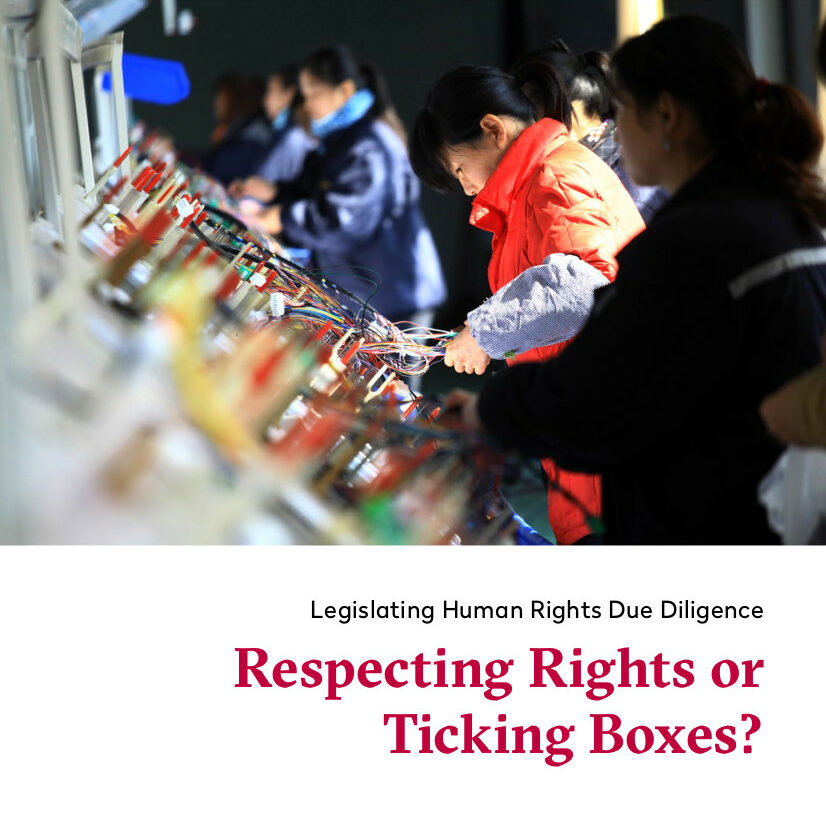
Respecting rights or ticking boxes?
Legislating human rights due diligence

Momentum to enact mandatory human rights due diligence (HRDD) legislation is building around the world. Such legislation is necessary to ensure corporations respect human rights and that victims of corporate abuse have access to justice and remedy. As a result, legislators must determine how to turn the normative standards for HRDD contained in the UN Guiding Principles and OECD Guidelines into binding, hard-law obligations.
Despite their comprehensiveness, these authoritative instruments are principle-based and do not easily translate into law within different jurisdictions and legal traditions. They are formulated in an open and flexible manner as to allow for adaptability in their implementation and respond nimbly to dynamic environments. While some degree of flexibility is inherent in HRDD, it also poses additional risks in terms of misinterpretation or misrepresentation.
If lawmakers do not achieve the right balance between practical flexibility and normative rigidity, there is a significant risk that HRDD laws will become, at best, a paper tiger that yields no real positive impact for people and, at worst, a new greenwashing technique behind which businesses can hide while continuing to do harm.
In order to ensure this does not happen, this briefing paper identifies 12 key interpretations of the norms that legislators must get right when establishing HRDD obligations.
This is a joint briefing paper by Clean Clothes Campaign, ECCHR, Public Eye and SOMO.
Do you need more information?
-

Joseph Wilde-Ramsing
Advocacy Director
Partners
Publication

Related news
-
Failures in due diligence and workers’ rights protectionPosted in category:Opinion
 Joshua RosenzweigPublished on:
Joshua RosenzweigPublished on: Joshua Rosenzweig
Joshua Rosenzweig -
 Carbon offsets often disenfranchise communitiesPosted in category:Long read
Carbon offsets often disenfranchise communitiesPosted in category:Long read Joanna CabelloPublished on:
Joanna CabelloPublished on: -
 Carbon offsets are diverting money away from climate action in the Global SouthPosted in category:Long read
Carbon offsets are diverting money away from climate action in the Global SouthPosted in category:Long read Ilona HartliefPublished on:
Ilona HartliefPublished on:

